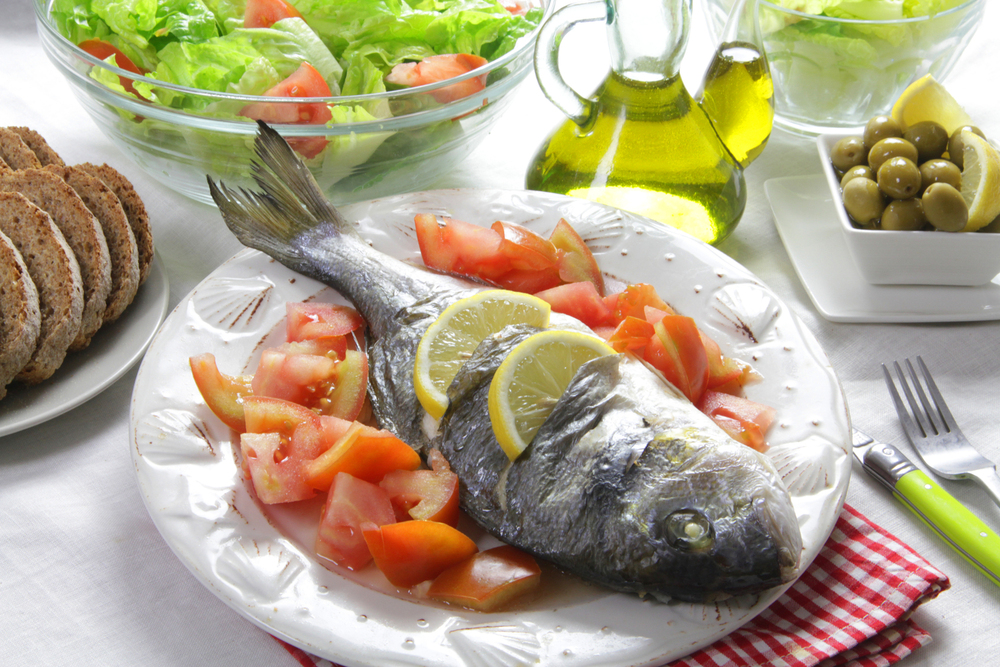A beginner’s guide to the Mediterranean Diet
The Mediterranean diet is based on the traditional foods that were consumed by people residing in countries like Greece and Italy back in 1960. Researches noted that these people were healthier compared to Americans and had a low risk of many lifestyle diseases.
The Mediterranean diet is the perfect heart-healthy eating plan.

Most healthy diets include fruits, whole grains, vegetables, and fish, and limit the intake of unhealthy fats. While these factors of a healthy diet are tried-and-true, subtle variations or differences in the proportions of certain food items may make a difference in an individual’s risk of suffering from heart disease.
Various studies have shown that the Mediterranean diet can cause weight loss and help in preventing heart attacks, premature death, strokes, and type 2 diabetes.
There is no one right away to follow this diet, as there are many countries around the Mediterranean Sea and people belonging to different areas may have eaten different kinds of foods.
This article shares the dietary pattern that is typically prescribed in studies which suggest that the Mediterranean diet is a healthy way of eating.
The basics
While following the Mediterranean diet, you can:
- Eat – Vegetables, extra virgin olive oil, fruits, seafood, nuts, fish, legumes, spices, potatoes, spices, whole grains, herbs, and bread.
- Eat in moderation – Poultry, yogurt, eggs, and cheese.
- Eat only rarely – Red meat.
- Don’t eat – Sugar-sweetened beverages, refines oils, added sugars, refined grains, processed meat, and other highly processed foods.
Avoid these unhealthy foods
While following the Mediterranean diet, you must avoid these unhealthy foods and ingredients:
- Added sugar – Soda, table sugar, candies, ice cream, and many others.
- Refined grains – White bread, pasta made using refined wheat, and others.
- Trans fats – Found in margarine as well as various different processed foods
- Refined oils – Soybean oil, cottonseed oil, canola oil, and others.
- Processed meat – Processed sausages, hot dogs, and others.
- Highly processed foods – Any food item labeled as “low-fat” or “diet” or those foods that look like they were made in a factory.
It is ideal to read food labels carefully if you want to avoid any of the above unhealthy ingredients.
Foods to eat
Exactly which foods belong to the Mediterranean diet is pretty controversial, partly because there is such differentiation between various different countries.
The Mediterranean diet examined by most research studies is high in healthy plant foods and relatively low in animal foods.
However, it is recommended to eat fish and seafood at least twice a week.
The Mediterranean lifestyle also involves regular exercising and sharing meals with family and friends and enjoying life.
You should base your Mediterranean diet on these healthy and unprocessed Mediterranean foods:
- Vegetables – Tomatoes, cucumbers, broccoli, Brussels sprouts, kale, carrots, spinach, cauliflower, onions, and others.
- Fruits – Apples, peaches, bananas, melons, oranges, figs, pears, dates, strawberries, grapes, and others.
- Nuts and seeds – Almonds, pumpkin seeds, walnuts, sunflower seeds, macadamia nuts, cashews, hazelnuts, and others.
- Legumes – Beans, chickpeas, peas, peanuts, lentils, pulses, and others.
- Tubers – Potatoes, yams, sweet potatoes, turnips, and others.
- Whole grains – Whole oats, whole grain bread and pasta, brown rice, whole wheat, rye, buckwheat, barley, and corn.
- Fish and seafood – Salmon, mussels, sardines, crab, trout, clams, tuna, oysters, mackerel, shrimp, and others.
- Poultry – Chicken, turkey, duck, and others.
- Eggs – Chicken, duck, and quail eggs.
- Dairy – Cheese, Greek yogurt, yogurt, and others.
- Herbs and spices – Garlic, pepper, basil, cinnamon, mint, nutmeg, rosemary, and others.
- Healthy fats – Extra virgin olive oil, avocado oil, olives, and avocados.
The key to good health is consuming whole and single-ingredient foods.











